
159
Episode 159 43 min
Step Into Your Story: Embracing Discomfort and the ‘Hell Yes’ Principle
Erik Qualman, Author of The Focus Project

00:00
00:00


AI is not going to take your job, someone that knows how to use AI is going to take your job because they’re going to be a programmer that goes from 1x to 10x.
In this episode
Do you feel like everything in your life is happening to you or for you?
It’s easy to feel like you have no control over how things at work happen – especially as a leader. All the moving parts involved in each day make it difficult to distinguish what you have a say over and whether or not you get to do what’s a “hell yes” for you.
In episode #159, Erik explains how to change your perspective as a leader for the best, the difference between multitasking and switch tasking (plus the difference between them) and the impact AI will have on leadership.
We also explore the art of saying no and chat about the unique life experiences that have brought him to where he is today.
Erik Qualman is a bestselling author with 5 #1 Bestselling books on Innovation and Digital Transformation in 8 languages. He’s also a renowned motivational speaker and has spoken in over 55 different countries worldwide, reaching over 50 million people. He is currently a professor of Digital Leadership at Northwestern University, and his materials are used in over 500 universities.
Tune in to hear all about Erik’s leadership journey and the lessons learned along the way!
Like this episode? Be sure to leave a ⭐️⭐️⭐️⭐️⭐️ review and share the podcast with your colleagues.
03:50
Early mistakes in leadership at Yahoo
10:17
Things happening to you vs for you
20:18
The difference between multitasking and switch tasking
27:45
The impact of AI on leadership
38:40
The art of saying no
41:00
How are you doing on a scale of 1-10?
Resources mentioned in this episode:
- Connect with Erik on LinkedIn
- Follow Erik on Twitter
- Read The Focus Project
- Listen to the Super U podcast
- Read What Happens in Vegas Stays on YouTube
- Check out Erik’s website
- Subscribe to the Supermanagers TLDR newsletter
Transcript
Erik, welcome to the show.
Erik Qualman 02:33
Well, thanks for having me. It’s great to join you in the listeners here. Yeah, really excited to do this.
Aydin Mirzaee (Fellow.app) 02:38
You’ve had an extensive leadership career. You’re an author, keynote speaker spoken in over 55 countries. That’s a lot of countries talk to over 50 million people hosted the Super you podcast and what’s really cool. And I found we learned that you were the second most liked author behind Harry Potter’s JK Rowling. So tell us about that. That’s really cool. How did you get that title?
Erik Qualman 03:04
Yeah, I had to pitch myself when it happened because I’m a huge Harry Potter fan. And my mom’s the biggest Harry Potter fan. So that really was helpful for her to see that as well. It was a distant second. But it was run by likeable media up in New York. And they did a bunch of categories. One of them was most likeable author, they’re doing most likeable, CEO, most likable actor. And so just so happened that I got enough votes and got second place. So super pumped, because there’s people on that list that I looked up to that were kind of my heroes, like a Seth Godin, or Guy Kawasaki. And so to see that come to fruition was fantastic.
Aydin Mirzaee (Fellow.app) 03:44
Yeah, super cool. Excited to get to chat with you today. First question we’d like to ask on the show is, if you remember when you first started managing and leading teams when you were first exposed to it, do you remember some of the very early mistakes that you used to make?
Erik Qualman 04:00
Yeah, it’s a great question. I think that in my life, managing teams goes back to college, even as the president of our fraternity, which might have been the hardest role you could ever imagine, where you have to manage 150 Crazy people that are also your friends. So looking back, it was actually probably harder than some of my managerial roles in business, because in business, you got a little more just hierarchy within that organization. But from a business perspective, yeah, I do recall was at Yahoo. I was at Yahoo back when they were kind of the face book of the day. I mean, it was white hot. And so yeah, definitely a lot of learnings and mistakes along the way. And so the biggest learning was I thought everyone thought in executed exactly like I did, which is a huge mistake. Everyone’s different. So you got to figure out what are their strengths? What are their weaknesses in play to those strengths? Where I thought that if I just said here’s where we’re trying to go, let’s go do it that because I don’t like a lot of managers. I like managers for me to come to them, not micromanage. And then so for me as a learning that not everyone wants to be managed the same and not everyone’s going to be like me, which is a good thing. Because that means you’re gonna surround yourself with people have different strengths. And so that was the biggest learning second biggest learning was that they don’t care what you know, till they know that you care. And so you have to take time to get to know these people outside of work. And so that was a big learning for me, because I went in with the mindset, hey, this is work this the job, just do the job. Let’s just get it done. And and so it’s really just digging into the why of how what makes each individual tick. What incentivizes them, some, it’s money, some, it’s they want to be recognized. Some they want to be part of a team. So it’s trying to figure out exactly what makes each and every individual tick. So those were some of the big learnings early on. I feel bad for some of my my team members did I had to learn as them as kind of guinea pigs, but it all worked out.
Aydin Mirzaee (Fellow.app) 05:59
Yeah, Erik, that’s super interesting. I mean, I love the phrase, they don’t care what you know, until they know you care. How did you realize that? Do you remember the story or the example of like, what happened? And you’re like, wow, it’s more than just work. And they need to know that I care.
Erik Qualman 06:16
Yeah, it started with a meeting that I was in, I just run the meeting, and then we’d adjourn. And at the end of one of the meetings, I decided to just, it seemed like I felt the room like through emotional intelligence through your EQ, I was reading the room that it didn’t have as much energy as I thought it should. So I didn’t want to end the meeting kind of on a doll notes or low notes. And so I’ve wanted to spice it up and just said, Hey, just for fun. I want to know, like, what was your favorite cereal as a kid? What was your favorite breakfast cereal? And then you get answers. I didn’t eat cereal at all. Like, it’s crazy to eat cereal as a kid and you got cinnamon toast, and then you got no way it’s peanut butter, Captain Crunch all the way no Frosted Flakes. And then you saw everyone’s eyes light up and the energy in the room, just lift it up. And so from that moment on, I just tried to ask a question like that allowed me to get to know the team better and also allowed teammates to get to know each other better. But I think people started to look forward to these quirky questions that we throw out there, do you when you brush your teeth? Do what the toothbrush and put the toothpaste on then wet it? Or do you put the toothpaste on and then wet it? It’s so just little questions like that to get a little more insight. And also to understand that everyone does think differently. So it’s able to show them that everyone thinks differently. So even though you and I might see the same thing will perceive it differently. And that’s proven through science. I mean, the person at the when I teach at Northwestern your brains trying to make that as interesting as possible. So when I say one sentence, people will actually hear it differently. Even though I said the exact same thing. Like if you had a record, it’s like this is what was said. But everyone’s brains trying to make that more interesting for them. And so even though that sentence is exactly the same, if you went to recording, everyone in the class is going to hear it slightly differently.
Aydin Mirzaee (Fellow.app) 08:05
Oh, interesting. So tell me more about that. Why does it brain try to make it more interesting? I haven’t heard it in that way before.
Erik Qualman 08:13
I mean, it goes back to survival, right? And so it’s going back to how do I stay awake and alert. So your brain is going to if I’m sitting there, I’ve got to go hunt the saber toothed Tiger. And I’m kind of nodding off that could get quite dangerous. And so your brains trying to stimulate you with any kind of information that has coming to them. And so how does it make it more interesting for you? And so that’s really interesting for everyone to know. And it’s also why perception just like if there was some an accident just occurred out here in the police interviewed everyone. Everyone saw that differently even though it’s the same accident. Or if these memes that went wild and massively viral is the dress blue is it pink? You know sometimes when you look at stuff like that, or I was just in an escape room, and you had to listen for tones and then figure out which tone match the tone on the phone and I was doing with my daughters and my wife it literally every tone sounded exactly the same but fortunately they could discern it better than I could. And again that’s also surround yourself with different strengths on your team. And so they’re really good at our stay away that tone sounds like number five on the phone hit number five
Aydin Mirzaee (Fellow.app) 09:22
Yeah, it’s almost like anything that you hear your brain in the background is saying what’s interesting about this to me, I do have another question for you but before we go there so tell me about what do you do with your toothbrush? Do you wet it before first the toothpaste comes how do you do it?
Erik Qualman 09:39
I went for the toothpaste Ah Then why did again
Aydin Mirzaee (Fellow.app) 09:42
oh wow Double Take that. Okay, very cool. That’s awesome. Very good to know. I just do the I just do it once before the toothpaste comes on for the record. But yeah, that is awesome to know. I feel like I know you really well. Now this is great. And I certainly think that this really does beat the How was your weekend type of repetitive question like this is much more fun and gets people to laugh and maybe bond in a way that they haven’t. So that’s a good question for everybody to ask for all the listeners maybe ask that question, the next time you walk into your group meeting. So on the note of keeping things interesting, one of the things that I have to call out is you have this new book, and the image of the book for those like, you know, this audio podcast, but you know, for those that don’t see this the way I do, you have the image of yourself on the book, and you have these bright green glasses. And you’re also obviously like sticking to that image and have those bright green glasses. Tell me about the story of that is that part of the keeping things interesting? Tell me about like, when you started wearing the bright green glasses,
Erik Qualman 10:51
I started wearing the bright green glasses eight years ago, it something that happened for me, then at the time, I thought, for my whole life, I’ve been called Erik Qualman. But when you’re handed email addresses at your first job, it’s first initial last name. And so that just happens to be equal man. And it sounds like a superhero. And I didn’t like it for 15 years. I grew up in Detroit. My first job out of college is working for Cadillac, and so well actually as an intern first. So as an intern at Cadillac, so you can imagine you’re an intern, and all sudden they run out coffee. And they’re like, man, we’re out of coffee. Well, eco man, you’re super fast. Once you go get your superhero, can you go get us some coffee, go run down the street and get us some coffee. So I didn’t like the name. I thought it was happening to me, not for me. And people just make fun equal man where your tights blah, blah, blah, where’s the cape. And then in a moment of time, I realized this is happening for me. So my third book, which is called What happens in Vegas, stays on YouTube was doing really well. And they wanted to do a magazine interview and they wanted to take a cover shot for the magazine. And they said, Hey, we’re gonna have some fun with this cover. You’ve got an interesting email address with equal man. Do you mind if you wear some Clark Kent like Superman glasses for the cover shot? I said, Yeah, that sounds like fun. And they go, do you mind if they’re green? Because it’s gonna be our St. Patty’s edition. I go, Yeah, we can do it, everyone. And they bring them out. I’m like, Whoa, those are alien green, those are really bright. Then we take the photo, that a couple months later, I went to speak in Kenya, this is the first time I was going to speak in Kenya. So I wanted to understand the culture a little bit more. And also part of the agreement that we had with the folks that were bringing me over was that I was going to adopt a baby cheetah from a rescue shelter, to help raise awareness that to take the cheetah home, my wife would absolutely kill me, but just to support the local area. And to support the shelter. The right over the woman that was kind of my host for the week, she looked at me and said, Hey, we had Usain Bolt, the Olympic sprinter here two days ago, and he adopted from the same litter of cheetah that you’re gonna adopt from and we filmed him, and we’d love to film you and marry all that footage together so that we can raise more awareness for the shelter. Is that okay? And I said, Yeah, that’s fantastic. And she paused and looks at me goes, but obviously, when we’re filming and taking photos, we want to make sure you’re wearing your green glasses. I look back at her. I go, Oh, no, I don’t wear those around all the time, people would be staring at me. That’d be very uncomfortable for me to wear those just for that magazine. And she looks at me that look at disappointment. I never want to see it again. She goes no, no everyone tomorrow. That’s what they’re anticipating. That’s what everyone Kenya thinks you look like it. So we scrambled around. We couldn’t find a bright green glasses in Kenya. But it was just a all sudden, as in that moment that I realized, Oh, this is happening for me not to me, it’s time to step into my story. It’s time to fully step into it, even though it’s uncomfortable at first. And for all your listeners out there, you can identify with this because that story I just told is really, we’re all live the same movie. We’re just different actors and actresses within that movie. And so your story, you have that green glasses moment, don’t do what I did, which was resist it for 15 years is step into your story. It’s very uncomfortable. At first, it was very uncomfortable for me to wear green glasses the first couple of years. But the way I was able to do it was to remind myself is that this is who I am. And long term. This is the most comfortable place that I can live. And if this helps one other person, by me wearing these green glasses, that it’s worth it. It’s worth any discomfort that I have to walk in. And then things start to open up that you wouldn’t anticipate. For example, a superintendent reached out to me and said, Hey, do you mind coming to our convocation and helping kick it off the school year and we’d love to wear the green glasses at the convocation. And then we want the kids once a month to wear the green glasses on a Friday, once a month and the bus drivers and the lunch ladies and the teachers to remind them that kindness is the most important thing that you can learn when you’re walking the halls within our schools. It’s not stems important we’re going to teach that and you’re going to get into good college but it’s really about kindness in these classes are going to remind you that to be kind that no matter what people look like that you need. To be kind to everyone, that’s the most important thing that we can learn. And so now we’re the business we actually produce and Sotheby’s sold, maybe 500,000. These because when I speak at events, now they want them on the chairs so that the people can put them on the audience members can put them on. So there’s a long story to say, in short step into your story. It’s very uncomfortable at first, that’s why you haven’t done it. Or if you’ve done it, maybe you’re resisting the biggest chapter of your story. And there’s reasons you’re resisting that, because it’s not easy if it’s easier to be done. But step fully into that discomfort, because long term, that’s the most comfortable place that you can live. And it’s gonna start to open up things you would never fathom, whether that’s students wearing green glasses, whether it’s we’re in the business of producing these green glasses in volume. And so it’s really just about making sure you step into your story.
Aydin Mirzaee (Fellow.app) 15:53
What an incredible story, and I can’t believe you sold over 500,000 of them. What an amazing story. But also, I think like that is now permanently etched in my mind, which is, whenever something happens, I’m going to ask, is this happening to me? Or is it for me? Or can I flip it or look at it in a different light? So thank you for sharing that with us. That sounds awesome. So let’s also talk about the writing. So six books in your best selling author multiple times over, we’re going to talk about the focus project, which is the more recent one. But you know, how did you get into the writing to begin with, it seems like you got into it, but then you got really into it. Tell us about that journey to it has
Erik Qualman 16:37
been a journey, I never would have thought that I’d be writing business books. As started my writing started actually in college, my major was business, but I played basketball at Michigan State University and on the road, you have a lot of downtime once you’re done with your homework. And most of my teammates love playing video games. But I learned early on that that was not good for me. I just would play them all the time very competitive and just realize that’s not even touch that after one semester of not doing well. It’s like let’s pause no video games. So I used to talk and pillows yet a lot of like stories, you should write a book. And so I go, I’m gonna be fun. Can I write a book? So I wrote a fiction book just for kicks, and then didn’t realize how it’s gonna help me. But 15 years later, social media, my space is big. I’m the Head of Marketing at travelzoo. We tried to get subscribers at travel zoo today, they have over 30 million subscribers, they get this weekly newsletter. But that was part as head of marketing. That’s my role is to attract people to this free newsletter. And that was primarily via email and traditional marketing in the day. And I started to see my nephew is watching MySpace around like, wow, this person is like obsessed with these things called MySpace. And I was looking over his shoulder. I’m like, Oh, my gosh, this social media is going to revolutionize the world, communication wise. And so I was at the search conferences, because we bought a lot. I think we spent like 30 million a year on search, which is a lot at the time. So it’s not only search conferences, speaking as the head of marketing at travelzoo to say why do we spend so much as a small company? Why are we spending so much money on search? And then I started talking on social media. I’m like, Alright, search. It’s cool. It’s important, but this new things going to be bigger. And they’re like, What are you talking about that teenage stuff? Several was pushing back. No one would go hear me speak anymore at these conferences, because they’re like, oh, that’s the guy talking about teenage stuff. But for sure, my friends goes, Hey, you should go talk to my publisher. I think you’re on to something. And so literally, I live in Boston, I take the train down to New York, and I started Googling what’s a good book title like social dynamics, it comes up zero results. I’m like, awesome. No one has this title. So I’m going to use this title. So that’s how I got started to write a business books I wrote social NYMEX, mainly because I was getting a little frustrated that people couldn’t at first I was frustrated. People couldn’t see that this is going to be big. And then I went Wait, wait, this is crazy. Yeah, people don’t see it. They don’t see it. We got rid of book to help them understand this wave is coming. That this Facebook thing that’s now starting to churn out a Harvard by a kid named Mark Zuckerberg that this stuff’s going to be massive for business, politics and communication in general. It so that’s the whole story behind the books. And then like you said, I’ve now written six different books, all within the genre of digital leadership, with the one outlier being well, why’d you write about focus? That seems a little different. They do go hand in glove because of the digital components are pulling our focus. I saw social dynamics was designed to say, Hey, you gotta get into this stuff. And then all sudden, I said, Whoa, you guys took your phones and like almost ate your phone and went into your phone. You got to give yourself a pause and understand the balance between that Flintstones and Jetsons world. And you need to focus not on the social media aspect I told you get into it, but you went way too far into it. Now you got to pull back understand the balance.
Aydin Mirzaee (Fellow.app) 20:00
Yeah, that’s super interesting how you got into it. And you also mentioned that you teach digital leadership. I’m going to ask you about that as well. But let’s talk about this book specifically. So this one came out August 2022. And it is, as you mentioned, slightly different, but very related to the same topics. So one of the things that you mentioned in the book is you differentiate between the ideas of multitasking switch tasking, single tasking. And I wonder if you could maybe elaborate on that I think like the Myth of Multitasking has been dispelled a little bit. I think more people now know that they shouldn’t do it. But what is the difference between multitasking and switch tasking? And how do you define that?
Erik Qualman 20:46
Yeah, I mean, first and foremost, the reason we multitask is all good reasons. It’s all the listeners out there, you’re trying to get more knowledge, you’re sitting there, you want to get better you want to so we multitask. Because we want to read more of our 24 hour day, we want to get ahead of the competition. And we want to beat Father Time, even though Father Time is undefeated. So these are all good reasons. But ironically enough, when we’re multitasking, we’re actually getting less done. And it has negative health ramifications. Because here’s the deal. We aren’t multitasking, we’re actually switch tasking, our brain can’t do two cognitive tasks at once. It can’t parallel process those tasks at once. So what your brain is wrestling with when you’re quote, unquote, multitasking, which now everyone knows is actually switch tasking, your brain is trying to figure out what’s more important A or B, A or B, in that moment of switching, your IQ can drop up to 15 points, which my dad’s always really quick to point out, he’s like, son, you can’t afford to lose that many points. That’s a lot for you. That’s a high percentage. And that’s equivalent of not sleeping for 36 hours, or as teams because everyone on this podcast manages teams, as teams, your productivity can decrease by up to 40%. So again, the reason we multitask is all good, intense, but ironically, we get less done, it has negative health ramifications. So what you want to do is you want a single task, so focus on one thing at a time, again, kind of easier said than done. I’ve now known this for 10 years, and literally every day I do catch myself multitasking. So I have to tell myself stop focus on one thing at a time. Now to turn turn the gears a little bit because some people might be out there go Wait, I thought I read an article that said women are better than men at multitasking. Well, I call that good tasking. So it makes it easier to understand. And I’m a big fan of good tasking. So good tasking, especially now that we’re a lot of us are working in a hybrid environment is you got to take advantage of there’s negative downside of us all working at home. So you might as well take advantage of the upside. So the upside is a good task would be that you have a conference call, do you actually go out and walk in the woods during that conference call? So that’s good tasking. It’s not using two parts of your brain. It’s not two kinds of tasks, one’s physical, and one’s cognitive. Or it could be gosh, I gotta fold my laundry during this call, I gotta clean the house. So that’s what I call good tasking. And so do that as much as you can. A simple way to do that, as well as if someone goes, Hey, let’s have a meeting. It’s just us. Let’s have a zoom and like, do you really need it to be a zoom? Do we really need to see each other? Why don’t we make it a walking meeting? I guarantee 90% of the time the person’s like, that’s fantastic. I’ve been wanting to exercise more. Let’s do that. Let’s make it a walking meeting. And then you both understand, hey, there’s a burden mechanize? Of course, you’re outside, no big deal. Let’s keep walking.
Aydin Mirzaee (Fellow.app) 23:30
Yeah, I agree. First of all, walking meetings are great. And they should happen more often. I feel like we did more phone calls pre pandemic and then somehow everything became a video call. So it definitely is something that makes a lot of sense. And yeah, as you define it, what the difference is, and I like the term switch tasking. And now that I’ve heard it, it’s one of those things that I won’t be able to forget. Okay, they’re just a quick note, before we move on to the next part, if you’re listening to this podcast, you’re probably already doing one on one meetings. But here’s the thing. We all know that one on one meetings are the most powerful, but at the same time, the most misunderstood concept in practice and management. That’s why we’ve spent over a year compiling the best information, the best expert advice into this beautifully designed 90 Plus page ebook. Now, don’t worry, it’s not single spaced font, you know, lots of tax. There’s a lot of pictures. It’s nice, easily consumable information. We spent so much time building it. And the great news is that it’s completely free. So head on over to fellow.app slash blog to download the Definitive Guide on one on ones. It’s there for you. We hope you enjoy it, and let us know what you think. And with that said, let’s go back to the interview. Is there a common example of you said that even during your day today, you have to remind yourself like is there a common example to like really hit it home? or something happens and you’re like, oh, no, like focus focus that might happen on a recurring basis. Yeah, I
Erik Qualman 25:06
mean, first of all, and you’ve heard this a lot, probably from other speakers, but it’s really about making sure when you’re in the moment, if you’re working on something, try to remove all distractions. So obviously, that’s your phone, don’t have the buzzers on the beeps, try not to have a ton of tabs open. If you’re working on that one task. If you can get in a quiet room that she’s usually easier said than done than do it. But that’s key to do that. And then people out there, they’ll say, No, I can multitask. It’s hard for me to do this over a podcast. But sometimes when I’ll have an audience do is I’ll just have them write down that multitasking is switch tasking, that simple phrase. All right, write that down. And then below it, just write a number on there, each letter, so 1-234-567-8910. And so I’m gonna do that right to sentence first, then write the number under each letter after that. And so I’ll have a clock out and I’ll go go, and I’ll hit 30 seconds, most people can get that done doing it that way. I go now, what you just did, that’s a sign, what you just did was switch tasks, you did the letters first, and then you did the numbers. So that’s good. I mean, you single tasking, you did the single task. So single task was the sentence and single task for the numbers below it. Now we’re gonna do it’s multitasking slash switch tasking. So you do the exact same sentence, but different order. Now I want you to write S and then one, then W, then two, and then the i Then three underneath it. So that’s an example of what multitasking which we now know, switch tasking, and no one can get it done in 30 seconds. So that’s what’s showing, that’s a great example of why that doesn’t work, why it doesn’t work. And so that’s really hits home when you do that, that actual exercise.
Aydin Mirzaee (Fellow.app) 26:44
Yeah, that’s, I mean, now that you mentioned, even, I mean, I don’t need to do it, I know that I won’t be able to do it in 30 seconds. But yeah, that is a really good example. The other thing, just on the phone thing, I feel like my phone is on silent perpetually. Who knows I’m in a podcast, I’m in a meeting, I just, but what I found is especially helpful is for me not to be able to see my phone. So I actually take it and put it in my desk drawer. Because as soon as it’s out of sight, it’s out of mind. But if it’s there, then somehow like it’s a habit thing, right? My hand will just extend, pick it up, and I’ll look at it from the side of my eye during a meeting or doing something and before you know it, I’m checking stocks and like before you know it like I’m like completely defocused. And so yeah, that’s a trick I picked up recently, which is just make sure that I can’t see the phone. And that definitely helps to love it. So one thing that I also wanted to chat with you about is since you teach this digital leadership course you’ve been doing it for a while. Your books, our topic around this. The topic du jour, right now is AI is this transformative technology that people know about. There’s this wave coming. And it’s hit various parts of, I guess, organizations, but we all kind of expect that the wave is a really big wave, and it will have a much more meaningful impact. And I’m just curious, like, as you teach this course, and you talk about this topic, what are some things that you’re thinking about or teaching people about, you know, as it relates to AI and leadership and what people should do?
Erik Qualman 28:21
Yeah, I mean, first of all, you want to look at it from the perspective of all these things. They’re slow till they’re fast. So a good example would be QR codes. QR codes were very popular in 2003. Everyone said, This is it. This is a new way to market, the seller uses QR codes. But it took till 17 years later in a global pandemic, to where they’re slow until it went overnight. Everyone uses a QR code at a restaurant and across the board all these things. So that technology existed for a while. Now I’m really bullish on AI because it’s already here. People use it every day, when you think about Google Maps. They use it when you’re using Alexa at home. And so it’s already here. Now, it got super hyped up because of chat GPT, which forced Google’s hand to come out with barred. But I still think we’re very early in the game. Meaning the tool is very useful for certain things like I go like I want to ask 10 questions on a podcast, I go to Google bar, and go here’s 10 Good questions. And I could use that. What you don’t want to ask Google Bard for now is what’s the dosage I should give my five year old Have a sip of metta fame, because it’s probably gonna get it wrong. Because these tools do what’s called to loosen a right now so the literally make stuff up. So the first week I typed in my name and said I went to Notre Dame, which I don’t even like Notre Dame no offense at Notre Dame listeners, but they’re kind of the rival to my undergrad. And so when you think about that, we’re early but this stuff’s gonna be amazing. What no one can predict what we can see as this stuff’s gonna be here. Just like I can see that mobile voting will come, it’s going to be here, what none of us can predict otherwise it’d be the richest person in the history of mankind is the timing. You don’t know when it’s going to become fast. And so I think we’re still early in the game on AI. But we’re starting to see it, maybe, let’s say 10 years from now you’ll see it in medicine, to where it’ll actually scan read it, they’re already starting to test this out. But did it can actually read those x rays and help augment or even replace that person that reads it? It could just be real time. Oh, that rash you have you go to the mall and or you just use your phone, take your phone and scan. And it’s like, oh, you’ve got this rash. Here’s the prescription, Amazon’s gonna ship it to you tomorrow, hit yes, boom, you’ve got that. Now, that might be a little ways away. What it is doing right now is a lot of the doctors times chewed up with paperwork, because of our messed up medical system. That’s a whole nother podcast, but it’s really about just, they’ll reduce the amount of time the doctor has to spend on paperwork, because AI can kind of sift through it quickly, or automate it and do it real time. So you’ll see the beginnings of it in the medical field on the paperwork side. But then long term, you know what’s coming is that, yes, it should be able to scan that or read the X ray. And that’s incredible. It’ll hyper accelerate everything. But I don’t know the timing. I just think we’re early on AI right now. But to your question, why should you do you should be testing these things a little bit every day, just to see how you can use them what it looks like. So you’re not left behind?
Aydin Mirzaee (Fellow.app) 31:29
Yeah, it’s really interesting. I mean, as it relates to planning, resource planning, process planning, it seems like if you’re about to, I mean, first of all, it seems like everybody should do some sort of an audit, like, what are the things that my team, my org tends to do? What’s repetitive that happens over and over again? And then ask the question like, Can AI help? Can I help? Maybe do that kind of an audit, but I do agree with you, you need to spend time every single day, looking at what’s out there, because the number of new tools that are coming in are awesome. Just recently, it’s very interesting. I started using this tool. I’ll give them a shout out here. It’s called Munch. But basically, you feed it a podcast video, and then it’s going to automatically highlight the clips like what are likely to be really great clips that you can highlight. Whereas like that was a thing that we used to do manually. And like Mark Oh, that part was super interesting. Like, let’s minute 22 and 30 seconds to and then. But yeah, now like we can just feed it in. And it’ll say these are some potential clips that you can use. And I mean, very small thing. But the point is, like anything that’s a repetitive process is worth looking into to see if there’s tools now that can help.
Erik Qualman 32:41
Exactly. And the tools are there, but they need to be better to use. You mentioned the podcast is just like, how many photos does everyone have on their phone? That they’re gonna lose eventually, to where that’s a great if someone can figure that out. They’ve got some, okay tools that can do that. But it should really look through and go, here’s the top 300 photos and put them in an album for you. So you don’t have to manually do that. That’s why no one does it, because it takes them so much time to do it to start to sort their photos.
Aydin Mirzaee (Fellow.app) 33:10
Yeah, it’s super interesting. But the other question I had around this is like, Have you thought about, like how this might change the makeup of teams going forward? Or any thoughts on that?
Erik Qualman 33:21
I do. I mean, the top question I get is this gonna take my job. And I always say AI is not going to take your job, someone that knows how to use AI is going to take your job, because they’re going to be a program that goes from 1x to 10x, or whatever they’re in there. They’re cutting up there during the social media post selling and do 100 ones, because you mentioned they’re using a tool like mine, because it’s like so much better. And so really understand that, that AI is not gonna replace your job. someone that knows how to use AI is going to replace your job. But I like how you mentioned this. It’s like, how can we use AI? So we do some animation here. So we make animated films for Disney like they’re short, the two minutes, mainly from a business standpoint could be for Mondelez, cardio, IBM, but we’re looking at, instead of having someone physically program that animation, is there a way for us to say this is what we want to look like. And it can go into a suite like Adobe, and automatically do that programming. I don’t think we’re there yet. But I’m hoping we get there quick. And so that’s like to your point, what can we automate some of the stuff you can automate right now is any sales outreach. And so that could be through any tool like a HubSpot to where it’s like, are you copying and pasting a lot? Or that conversation, the beginning of that conversation? Can you use AI for that cold outreach? So those are fascinating things I think are ready. The downside? You always get asked the downside. Like the example I gave on the children’s dosage. That’s a huge downside. Whereas if it’s somehow you made a mistake on a cold outreach email you learned from an adjuster is not as big a deal.
Aydin Mirzaee (Fellow.app) 34:54
Yeah, super interesting. I think yeah, that’s a conclusion. It’s worth spending time every day every week. Look Getting into this stuff. I did want to ask you about another topic, though, that you talked about in the book, something that you’ve been focusing on is prioritizing your day. I think one of the challenges in general for everybody. And I think like at all levels, it’s always a question of where do you focus your attention. And the problem is, there’s a lot of noise out there. You know, every level of leadership has its own version of noise. Every time you change roles, or like the year changes, the scale of the company changes, it feels like you need to do a new batch of prioritization of like, how to spend your time. And I mean, it’s something that you think about a lot talk to and teach a lot of people about, what can you teach us about prioritizing your day in this very short amount of time? Yeah, I
Erik Qualman 35:46
mean, the good news is that most of us know what the top priority should be. So when we interviewed folks, I did a project for two years. That’s what the books about because I wanted to learn how I can better focus because I was similar to a lot of listeners, that I’d get home, my hair to be on fire, and I go, don’t do that, again, we’re not doing that tomorrow. And then again, it would repeat itself. And so I go, this is crazy, because I kind of control I’d seemingly control my day, more than a lot of people would be able to control their day. And then if I’m struggling with it, everyone should be struggling. So I started ask around, and it was school teachers, to CEOs to stay at home moms to entrepreneurs, they’re all in the same boat. And so I go, this is crazy. So that’s why I took the two year project. And it wasn’t something new. This has been going on for 1000s of years. So I want to look at going all the way back to the stoics as well as obviously, now it’s harder, because we’ve got the phones, we’ve got the stuff that’s pulling at us. It’s just a faster society. And so that’s all I wanted to unearth was what are the things that we can do to give us a chance for success? So to your point, the most of the people that we interviewed, I asked them, what’s the one thing that make everything else either easier or unnecessary on your whole list? They knew right away. And I go, did you work on that today? No, why not? I was answering an email, I got pulled in by my team to do this and blah, blah, blah, different things would happen each day, urgent things would come out that they’d be pulled towards. And then I go, well, in five years, what’s the one thing that if you didn’t do it, you’d be most disappointed in and they’d list that? And then I go, Are you being intentional each and every day to attack that thing before the day attacks you? And so the shortest thing I can give you that’s going to help you the most is the night before write down? What’s the one thing that I need to do? Like, what’s the biggest thing I can do? What’s the thing that if five years from I didn’t do it, I’d be upset that I didn’t do that project or initiate that item in try to attack that when you first get up before the day attacks you. So attack that before the day attacks you and try to carve out time, whatever amount of time that is, could be a minute, that’s okay, just start. But it might be 30 minutes, just carve that out so that at least you attack the most important thing a little bit. So you didn’t let weeks, days, months, years slipped by not doing that thing. And so that’s the biggest advice I can give you write it down the night before it’ll make you sleep better because your brains been told I’ve taken care of that thing till tomorrow. So I don’t have to think about it tonight. I’m trying to fall asleep. And then it’s right there when you get up. It’s not like oh, what do I need to do today? It’s right there and kind of go after it from the get go.
Aydin Mirzaee (Fellow.app) 38:22
Yeah, I feel like the momentum of knowing what it is as you get in versus spending some time scrambling because when you scramble you start checking email, you start to check slack and before you know it, you’re down some rabbit hole. Yeah, no, I think that’s really good. And I love your phrasing of you know, is there anything that on your list that makes the other things easier or unnecessary? What a great question. I feel like everybody should ask themselves that question everyday to
Erik Qualman 38:50
Yep, and then keep it clean. I mean, try to visit a hell yes, it should be a hell now when you’re given opportunities. And the better you get at something, the more opportunities get to open up it’s kind of a curse until you handle it. So most of us are people pleasers, myself included and say yes to a lot of things. Even though I knew in that day or crouched I’d look at and go oh my gosh, I signed up for that. Oh man, I’m not really looking forward to that so go to the default for this week. Just try it out. If it’s not a hell yes. That it should be a hell now say it nicely and set up a system so you have that response ready. Most of the time it’s probably email to be honest or text in mind, you can borrow this because yours might be similar. You could do different things but mine is like hey, thanks for reaching out to me this opportunity. I’ve got to say no because I’m heads down on my next book. And I’ve got some hard due dates for it so but I wish the best of luck forever can fill this great opportunity. Notice I didn’t say in there that maybe a couple of weeks because they are going to circle back if you do that. In a quick note is better than a long No. So think about if you’re selling anything which all of us are in sales for for anything when you think about it, we won’t get into that sold under podcasts. But think about do you want a long no from someone you’re waiting for that know for a couple of days a week, weeks from a client, prospect know, if it’s gonna be a no, you want it right away, that’s gonna help you out more than the long now. So you got to remind yourself that as well as a quick, short succinct, no is better than a long no the way in and eventually saying I can’t make it or making some excuse about why you can’t go to said project when you when the time comes.
Aydin Mirzaee (Fellow.app) 40:30
That’s good advice. And I really liked the way that you phrase the how to say no. So there’s one really good iteration of how you can do that. So, Erik, this has been an awesome conversation, we’ve talked about a lot of different things, talking about great story of how to make sure that things don’t happen to you. But you know, happen for you. We talked about prioritizing. We’ve talked about focus. And we’ve talked about like managing people the way that they like to be managed. And so awesome, awesome insights from this conversation. But one thing that we always like to end on is for all the managers and leaders constantly looking to get better at their craft. Are there any final tips, tricks, or words of wisdom that you would leave them with?
Erik Qualman 41:13
Yeah, to kind of bookend this, because we’ve started off with this. And our conversation has been wonderful. Thank you so much, and thank you to your listeners is that until they know that you care, you know, it doesn’t matter. And so instead of you brought up, Hey, how was your weekend? A better question to ask is, how are you doing on a scale of one to 10? High to a scale of one to 10? In really no one should say 10? Because that’s perfection. So you’d have to set up a 9.99 didn’t like the follow ups even a more important question, how do I get you to a 10. So as a manager, you’re getting quantitative feedback, do it say hey, listen, this podcast, this author said to do this, this might be uncomfortable. What do you want to do? How are you doing one to 10? And then check in as often as you can doing that? Because you’re getting that quantitative feedback? Oh, that person’s 8888. Other four, wow, what’s going on? And then that qualitative feedback is, how do I get you to attend because you’re gonna get better insights on that person, and also on that business. So like, well, if I didn’t have to do this, it chews up a lot of my time, and I don’t really see the point of why we have to do that. So you’re gonna get some insights into the business as well as into that individual. So again, just ask him how you draw a scale of one to 10. And then this other part, talk to HR first, before you do this, but I would start doing this, and then all sudden, someone’s 889999, then they say, four, I’m gonna go, no, she’s our best animator, she might leave what’s going on? Why didn’t have context that she just broken up with her boyfriend? So in time, use your emotional intelligence and talk to HR first. But I’d like to ask how you doing in life, a scale of one to 10? And how you doing that equal man studios on a scale of one to 10? Because now I have context, is organization helping or hurting that person as a total person? And so those are better questions to ask. And it’s better way to check in most of us check in just around salary views, like once a year at most, that’s a terrible time to check in with someone because it’s tied to their salary view. And so it’s really about checking in with these micro check ins as much as you can, how you don’t want to turn how you don’t want to turn.
Aydin Mirzaee (Fellow.app) 43:14
Yeah, that’s a great, great way to do it. And certainly something I’m going to try. Erik, thank you so much for coming on the show and for doing this.
Erik Qualman 43:22
Thank you so much. It’s great to be here.
Aydin Mirzaee (Fellow.app) 43:24
And that’s it for today. Thank you so much for tuning into this episode of the Supermanagers podcast. You can find the show notes and transcript at www.Fellow.app/Supermanagers. If you liked the content, be sure to rate review and subscribe so you can get notified when we post the next episode. And please tell your friends and fellow managers about it. It’d be awesome if you can help us spread the word about the show. See you next time.
Latest episodes
-

Mauro Porcini, CDO at PepsiCo, Reveals the Traits Shaping the Unicorn Leadership Teams of the Future
Episode 2
Mauro Porcini
-

Kim Scott, Bestselling Author of ‘Radical Candor’ and ‘Radical Respect’ on Addressing Bias, Prejudice, and Bullying in the Workplace
Episode 1
Kim Scott
-
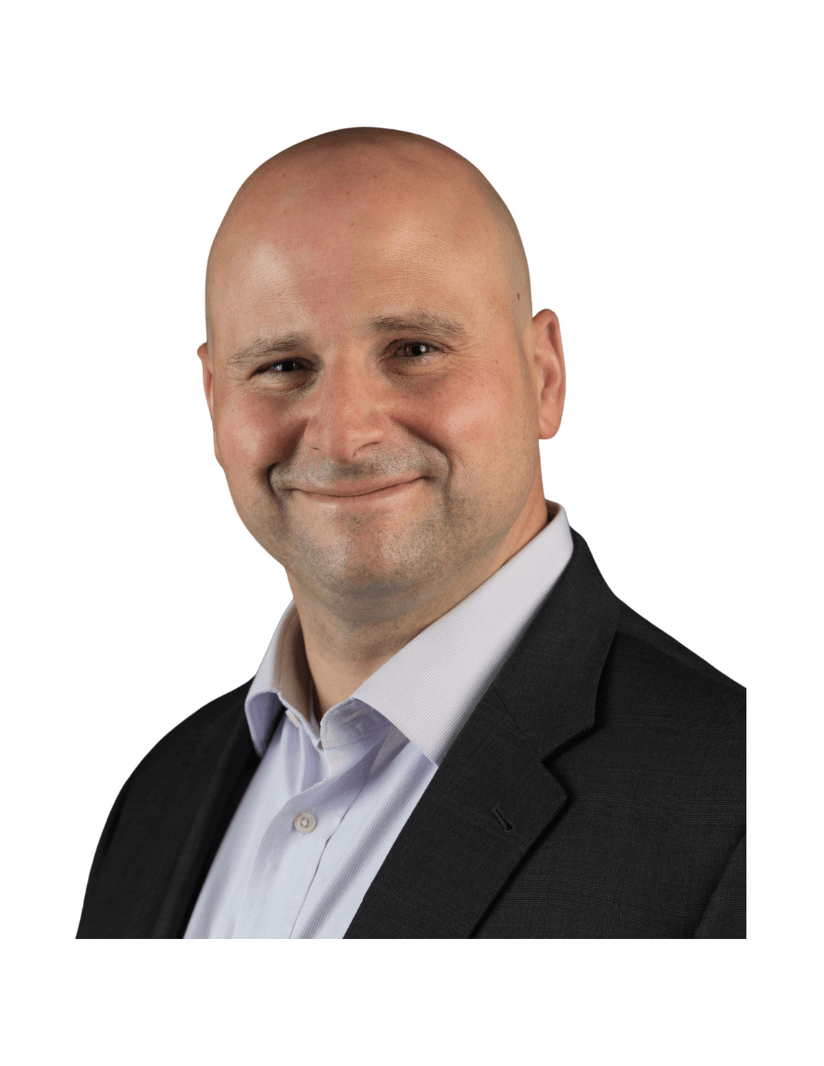
Tony Martignetti, Advisor to Innovative Leaders on How to Make an Impact Without Burnout
Episode 187
Tony Martignetti
Fellow Newsletter
Get exclusive interviews and leadership best practices directly into your inbox.
Wait! Before you go!
You might also be interested in these podcasts
-
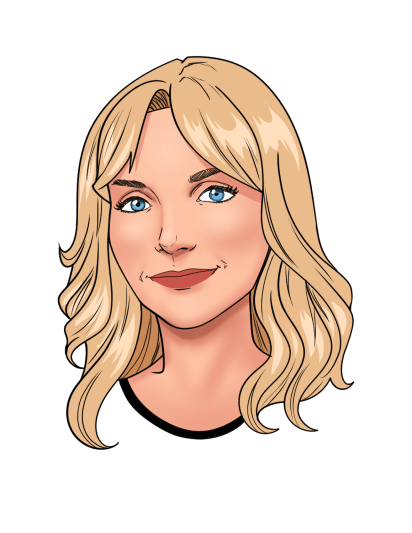
Episode 14
The Difference Between a Leader and a Boss
Kirstine Stewart
Head of Shaping the Future of Media at the World Economic Forum
-
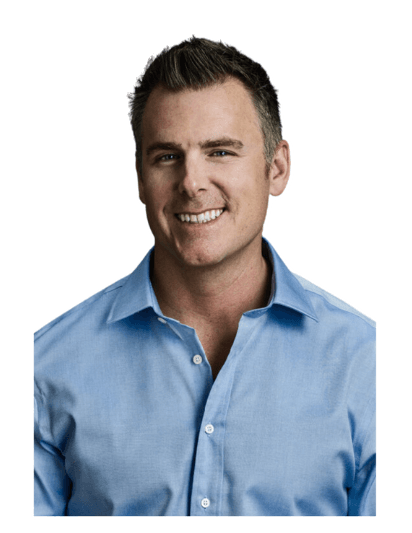
Episode 132
Are You A Transactional or Transformational Leader? How to Build Frameworks For Success and Design Your Time
Dan Martell
Author and Founder of SaaS Academy
-
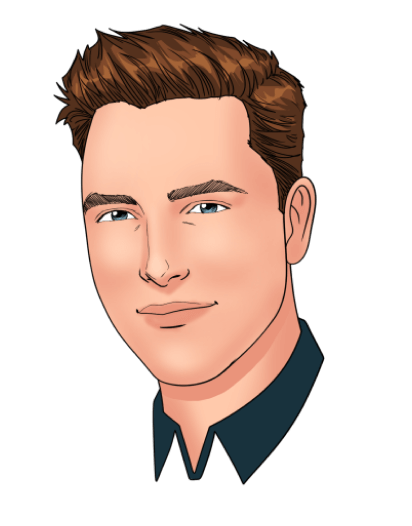
Episode 13
How to Find Your Zone of Genius
Alex MacCaw
CEO AT CLEARBIT
-
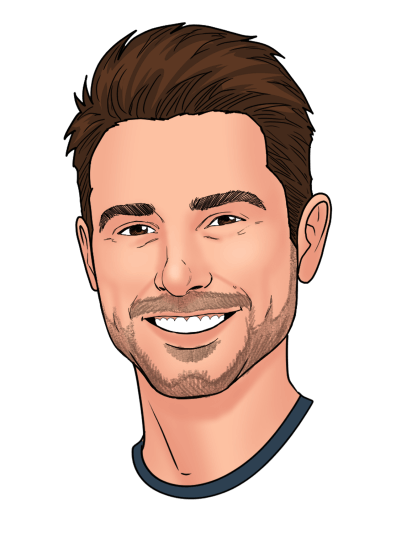
Episode 37
The Adventure of Leadership: Lessons Learned from Uncertainty and Discomfort
Jonathan Ronzio
CMO and Co-founder at Trainual
-

Episode 186
Susan Odle, Operational Change Expert: Why 70% of All Change Management Fails
Susan Odle
Operational Change Expert
-

Episode 178
The Resilient Leader’s Reality Check: Planning for Change and Adjusting Your Course
Leah Tharin
Startup Advisor
-
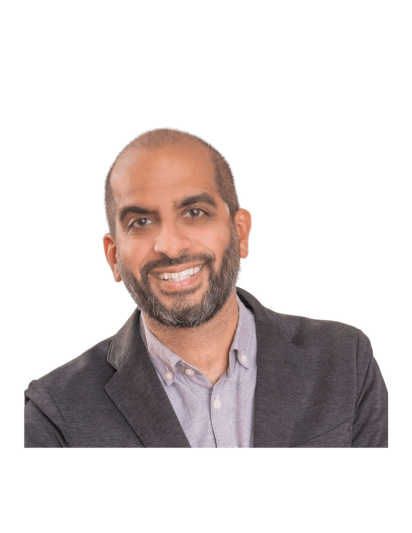
Episode 168
Implementing the Icelandic Workweek: A New Approach to Flexibility and Freedom
Ali Asaria
CEO of Tulip
-
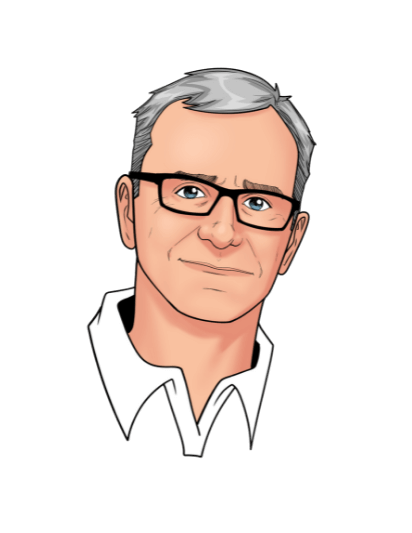
Episode 71
The Art of Growing Up: Using the Challenges of Leadership to Attain Radical Self-Inquiry
Jerry Colonna
CEO of Reboot.io
-
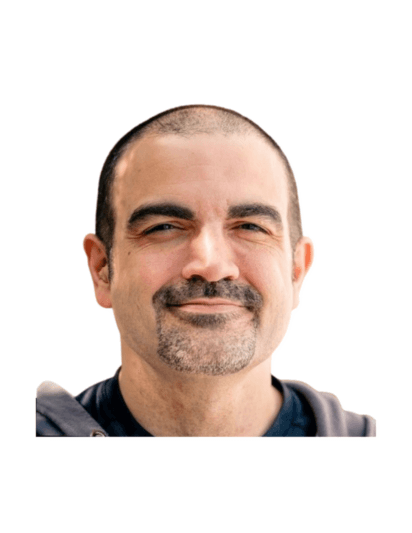
Episode 164
The Outcome-Driven Engineer: Navigating Hiring in an AI World
James Carr
Director of Engineering at Care.com